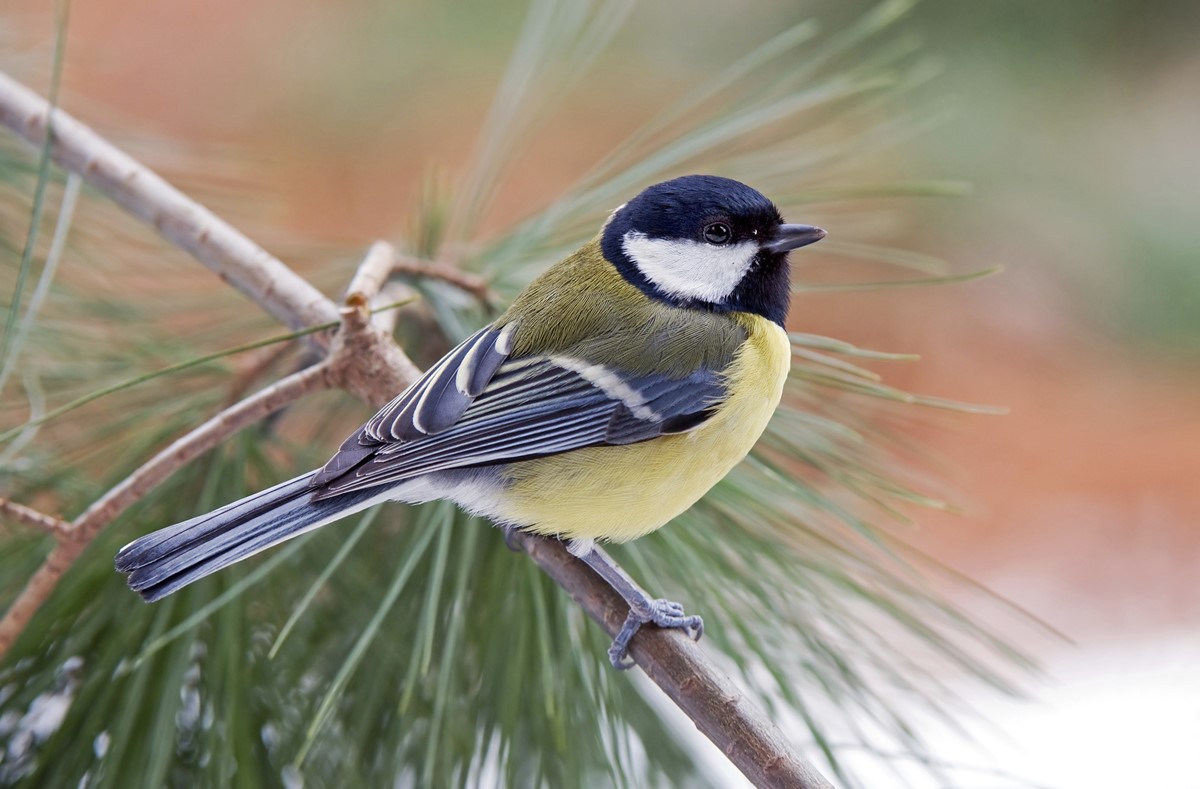Birds conform to local 'traditions'
Birds learn new foraging techniques by observing others in their social network, 'copycat' behaviour that can sustain foraging 'traditions' that last years, according to a study of how innovations spread and persist in wild great tits (Parus major).
The research, reported in Nature, is the first experimental demonstration of the spread of culture, and the operation of conformist learning in a wild non-primate.
The study, led by Oxford University and including ANU researchers, involved experiments with eight local populations of great tits in Wytham Woods, Oxfordshire (UK).
In five of the populations two male birds were trained to slide a puzzle box door either to the left or to the right. In three control groups two males were captured but not trained. The birds were then released back into their original populations to act as 'innovators', together with puzzle boxes that revealed a tasty mealworm reward when opened from either side. Electronic tags on the birds recorded how the two box-opening methods spread in each of the local populations through social network links.
Despite both methods working equally well, the team found that each experimental population strongly favoured the puzzle-solving solution that had been introduced by the trained birds. The preference for this arbitrary solution increased over time, forming a stable tradition. In the control populations, by contrast, it took much longer for birds to learn to solve the puzzle box.
When the experiments were repeated a year later each population still favoured their own 'traditional' method even though only 40% of each population of 75-100 birds were survivors from the previous year. The researchers were able to show that, even when birds discovered both ways of opening the puzzle-box, they were much more likely to use the behaviour that was dominant in their local population; in other words, they conformed to the behaviour in their local population.
"In humans, new traditions arise when novel behaviours spread through social network ties via a process of observational learning. But we really have very little knowledge if similar processes are happening in animal populations,' said report author Dr Lucy Aplin of Oxford University's Department of Zoology and former PhD student at the ANU Research School of Biology.
"We were able to experimentally demonstrate that sustained foraging traditions can occur in wild great tits. This appears to have been partly due to a process of conformity – the birds were preferentially copying the majority behaviour."
The team included scientists from the University of Ottawa, Canada, the Australian National University, Canberra, Australia and the University of Exeter, UK, and was supported by the Biotechnology and Biological Sciences Research Council (BBSRC), the Natural Environment Research Council (NERC) and the European Research Council (ERC).

